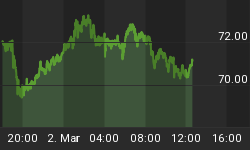After threatening to take action against social media that is not playing nice with Trump, the president late on Thursday signed an executive order that will attempt to limit the legal protections afforded to social media giants in direct response to Twitter’s fact-checking warnings on his presidential tweets.
Speaking from the Oval Office (not via Twitter, notably), Trump said: “We're here today to defend free speech from one of the gravest dangers it has faced in American history, frankly. A small handful of powerful social media monopolies control the vast portion of all private and public communications in the United States."
He also accused the social media giants of having “unchecked power to censor, restrict, edit, shape, hide, alter" the world’s opinions.
So, should Twitter be shaking in its ethereal boots? Perhaps not.
While Trump--who has used Twitter as a delivery tool for domestic and foreign policy--and whose campaign is suffering right now along with the COVID-19 pandemic that is crushing the economy--may be hoping that the executive order will be the pathway to tech regulations, more likely than not this is all just another round of drama. Other than having the appeal of an “executive order”, it seems to have no legislative teeth.
Mostly, it appears to be viewed as a desperate move by a desperate campaign.
Twitter’s response, in a statement, was this: “This EO is a reactionary and politicized approach to a landmark law.”’
Attempts to control the media in a democratic country generally do not work.
According to Mark Van Vugt Ph.D., controlling the media is the 6th step in the “7 Steps to Becoming a Dictator”.
China, Russia, Turkey, North Korea, Belarus, Iran…are just some current examples when one person or state apparatus controls the media. Some use fear methodology (harassing and killing journalists). Some use modern technology (blocking the internet). Some shut down independent media outlets completely, while others create their own media empire.
For a multitude of reasons, none of these is likely to happen in the United States--present day, and an attempt to control the media is never Step 1 to becoming a dictator. It’s Step 6 because the foundation must already be laid and the point of media control is survival.
Nonetheless, US President Donald Trump has just announced, not through official channels but ironically on Twitter itself, that he will "strongly regulate" or shut down social media platforms, which he has accused of silencing conservative viewpoints.
The threat came one day after Twitter for the first time added a fact-check warning to his tweets claiming that mail-in ballots are fraudulent.
Trump tweeted, without providing evidence:
Twitter put a warning label in the post and linked to a page that described the claims as "unsubstantiated".
Trump then accused the social media platform of interfering in the US presidential election scheduled for November, saying the social media giant was "completely stifling free speech, and I, as president, will not allow it to happen".
Trump’s dissatisfaction with the media is not new. Ironically enough, he has been tweeting and talking endlessly about censorship, and not just with respect to social media. At one point, he threatened to revoke NBC’s broadcast license, called to boycott AT&T due to CNN reporting, and wanted to regulate Google search results, among other things.
For years, Twitter has been criticized for allowing Trump’s tweets to go untouched, while the average Twitter users would risk being deleted for violating policies on harassment.
In June last year, the company created a warning label to flag and suppress political tweets that break its rules on acceptable speech, and then, in October, Twitter announced that the social media platform would stop running political ads.
This month, the platform introduced a new policy on misleading information amid the coronavirus pandemic. President Trump was never a subject of any of the policies.
Even recent posts in which Trump promoted a conspiracy theory about the death of political aide Lori Klausutis, blaming a high-profile critic Joe Scarborough, co-host of MSNBC’s “Morning Joe”, have not received the same treatment. Related: Gold Prices Fall As Stock Market Sentiment Turns Positive
Trump’s tweets involve the death nearly two decades ago of Lori Kaye Klausutis and unfounded allegations that she was murdered by Scarborough when he was a lawmaker and she was on his staff.
Some 10% of Trump’s tweets insulted or criticized journalists and outlets, or condemned and denigrated the news media as a whole, and many have responded with their own name-calling.
The president's tweets have had a global impact. His rhetoric has emboldened autocratic regimes in Cambodia and the Philippines who have happily echoed terms like "fake news" in their crackdowns on press freedom.
Prominent leaders or state media in at least 15 countries are using his “fake news” line to denounce their critics.
According to the annual list assembled by Wired magazine published in December, Trump is the most dangerous man on the internet, with more than a decade on social media, 36 tweets a day, and more than 80 million followers on Twitter.
President Trump tops the list for a fifth time in a row, beating oppressive foreign leaders, terrorists, hackers….
“Regardless of the outcome of the 2020 election, Trump's use of social media as an unfiltered, un-fact-checked megaphone has unlocked a new era of ideocratic politics, one that will likely never again be constrained to press conferences and official statements,” the report said.
Social media is indeed a double-edged sword, both for leaders and citizens. On one side, it is a perfect tool for leaders or state machinery to spread propaganda and disinformation. On the other hand, it can mobilize opposition and empower people to hold their leaders accountable.
In Trump’s ideal world, he gets Twitter all to himself, and Twitter accounts would be handed out to fans alone.
By David Craggen for Safehaven.com
More Top Reads From Safehaven.com:

















